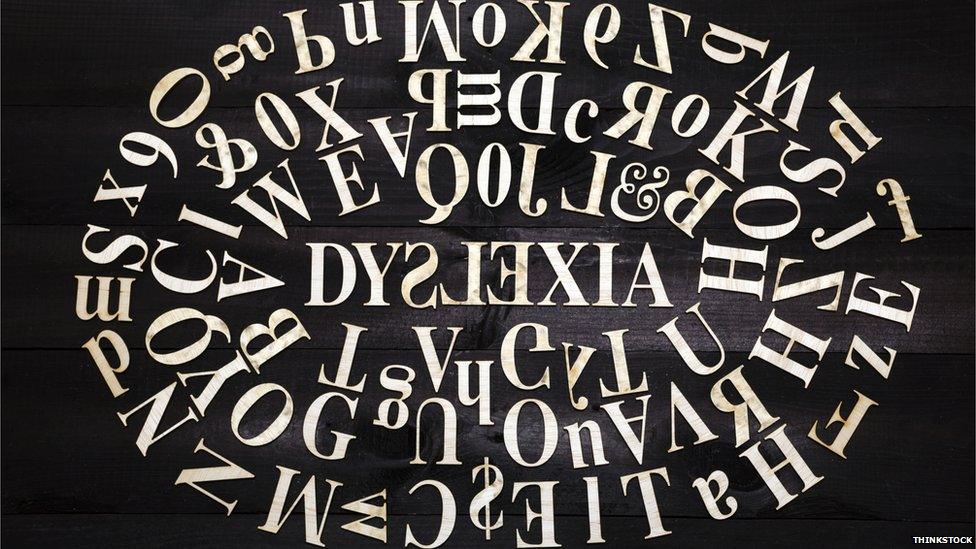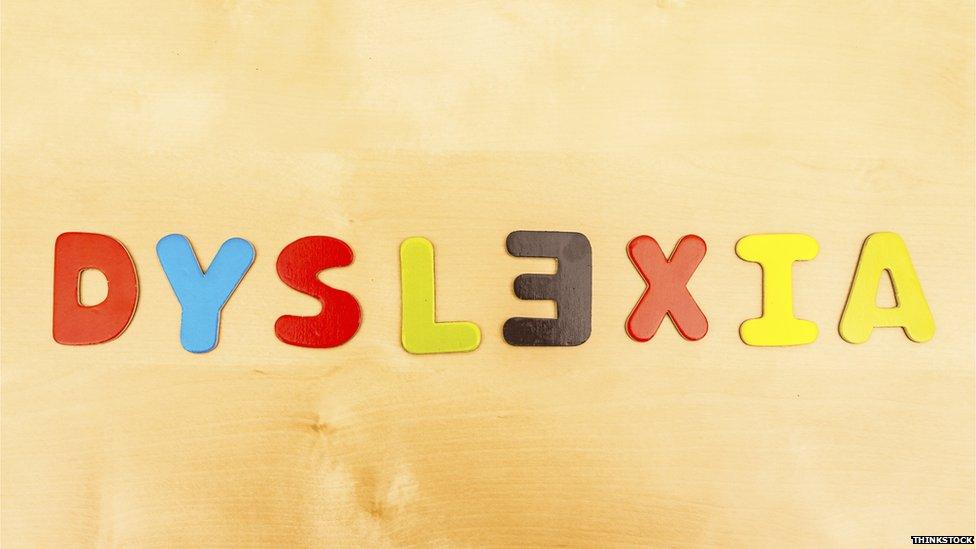Six myths about living with dyslexia dispelled
- Published

Dyslexia can cause problems with reading, writing and spelling.
It's a learning difficulty which affects somewhere between one in 10 and one in 20 people in the UK to some degree.
Although it's a lifelong problem it doesn't affect people's intelligence.
It comes after a woman from London with dyslexia won a disability discrimination case against her employer Starbucks.
She was accused of making false documents because she took incorrect temperature and time readings.
So what are the myths?
Newsbeat spoke with NHS choices and The British Dyslexia Association., external

You can't spell...
You can, it's just more difficult.
Teachers can use "phonological skills", which is the ability to identify and process word sounds.
The NHS choices website has advice on managing the condition, external.
You're thicker than other people...
Not true at all. Dyslexia is a specific learning difficulty.
Unlike a learning disability, intelligence isn't affected. You can be just as clever as your friends.

You can't do some jobs like be a doctor or a journalist...
You can do if you want to.
You have to do things differently, but there are no restrictions on what you can and can't do.
The earlier you get help the easier it will be.
You can't add up...
That is not dyslexia but something called dyscalculia.
It's common for people to have both. Dyscalculia sees people having problems processing numbers and doing adding up or times tables.
It can be worked out by doing a test.

Playing an instrument just won't happen...
Sight-reading music can be an issue but it is resolvable.
It can be important for some dyslexic musicians to get a whole picture of a piece before working on it in detail.
If text or music seems to swirl around, something called "visual stress" could be a problem.

Dyslexics are low achievers...
Not way.
There are numerous well known and well respected people with dyslexia including inventors, artists, authors and actors.
The likes of Richard Branson, Jennifer Aniston, Orlando Bloom, Leonardo da Vinci, Paloma Faith, Steve Jobs and Steven Naismith all have/had dyslexia.
For more stories like this one you can now download the BBC Newsbeat app straight to your device. For iOS go here, external. For Android go here, external.